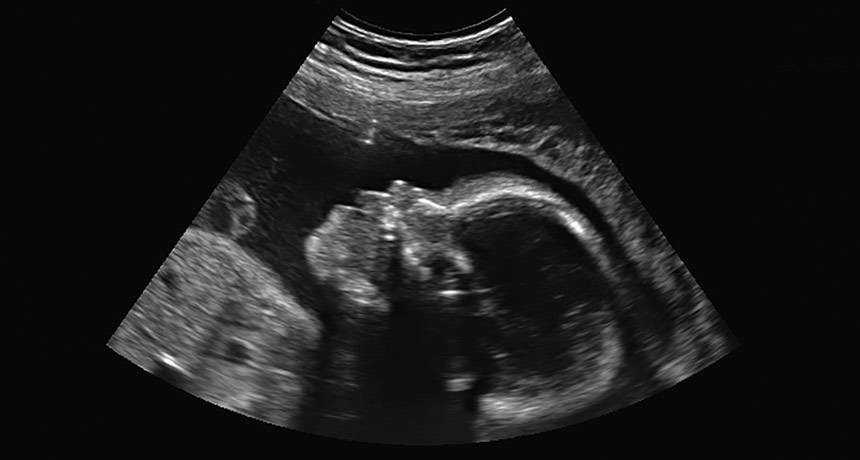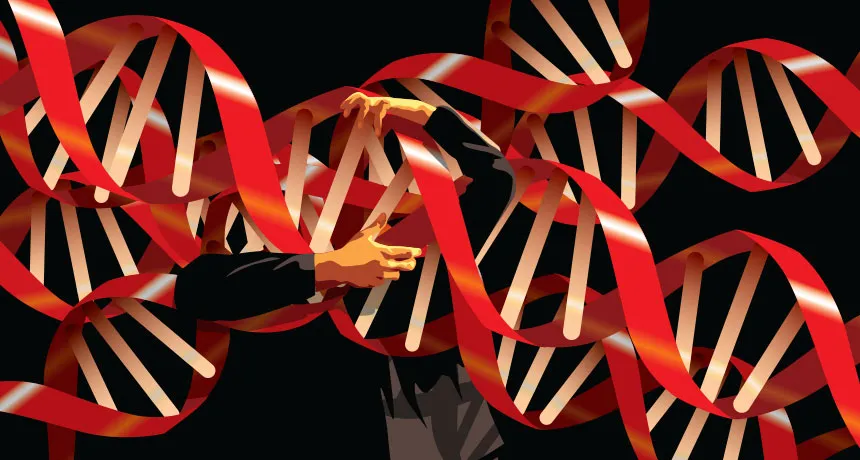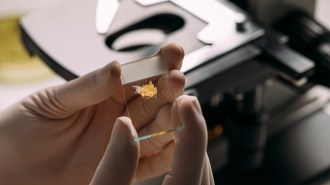
PEEK INTO THE WOMB While still growing in the womb, a fetus’s full genome can be tested, but the approach should be limited to special cases, three medical groups say.
Sunyaluk/iStockphoto
Decades ago, pregnant women had to wait about 40 weeks before knowing much about their baby. But swiftly moving technology offers increasingly detailed peeks into the womb.
Beyond generating adorable 3-D ultrasounds of scrunched-up faces, researchers can now analyze a fetus’s full genome from a simple blood draw from mom. But these genome-wide prenatal tests are not ready for prime time, three medical organizations argued in a position paper in the January Prenatal Diagnosis.
The method is undoubtedly powerful. Scanning the entire genome can reveal DNA abnormalities that more limited genetic tests might miss. But scientists don’t know enough about the performance of these tests, or their pitfalls, to recommend routine use, wrote representatives from the International Society for Prenatal Diagnosis, the Perinatal Quality Foundation and the Society for Maternal-Fetal Medicine.
How to interpret the information these tests provide is not always obvious. Many genetic quirks have little or no influence on human health, and sifting through a mountain of genetic data to identify the important signals isn’t easy. So far, large studies that could reveal the utility of these tests simply haven’t been done.
Ethical and practical issues dog these whole-genome tests, too. Identifying a potentially fatal genetic abnormality can be straightforward. But often, the relationship between genetics and outcomes is less clear. Researchers are still figuring out how specific genetic changes — or more likely, combinations of many genetic changes — relate to genetically influenced disorders such as autism spectrum disorder or to a risk of dementia in the baby’s distant future. How doctors or parents should handle this murkier information is an open question.
And then there are the genetic quirks that shape traits irrelevant to health, such as future height or eye color. In a recent survey, the majority of over 1,000 obstetricians/gynecologists expressed concern about ordering genetic tests that could reveal nonmedical traits. These doctors also wondered if genetic information overload would boost parents’ anxiety, leading to unnecessary and costly treatments, researchers reported in 2016 in Prenatal Diagnosis.
That’s not to say whole-genome tests should never be used. The tests should be considered when doctors suspect a genetic abnormality that hasn’t been uncovered by other methods, the position paper notes. When this happens, it’s best to also look at the parents’ genomes to get a clearer picture of the genetic trouble. These tests ought to always come with lots of discussions between health care providers and parents, before and after testing.








